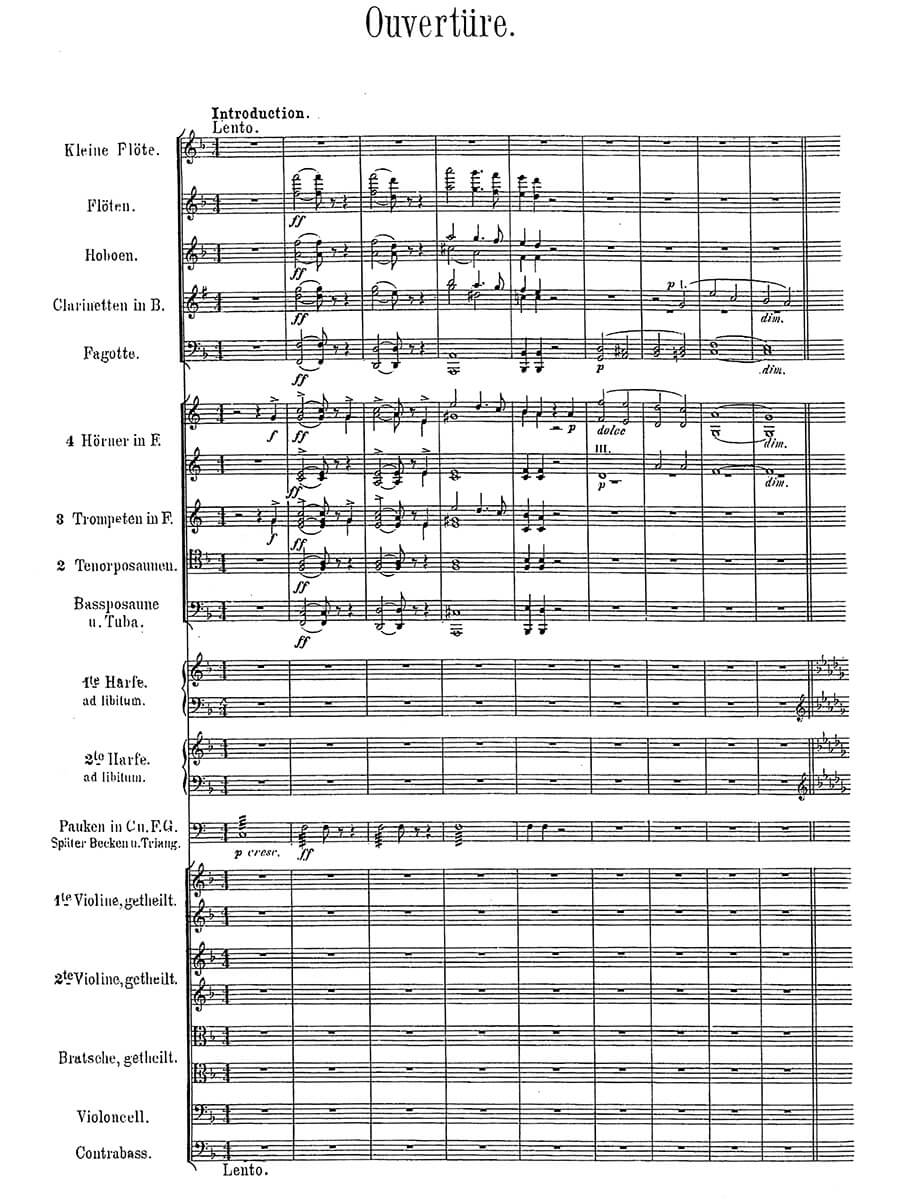Der faule Hans (note: full score version with German libretto partly in Sütterlin script, the vocal score No. 2106b contains German libretto with regular script)
Ritter, Alexander
61,00 €
Preface
Alexander Ritter – Der faule Hans (Lazy Hans)
(b. Narva, 27. June 1833 – d. Munich, 12. April 1896)
Introduction
The violinist, conductor and composer Alexander Ritter is known today, if at all, for his connections to Richard Strauss. In the relevant literature he is remembered as the person who introduced the young Strauss (during the latter’s tenure as musical director of the Meininger Court Orchestra, 1885/86) to the musical works and writings of Franz Liszt and especially Richard Wagner, to whose niece Franziska he was married. Ritter consequently played a key role in Strauss’s later espousal of the music and aesthetics of the „New German School“.
Strauss’s first brief mention of Ritter, 31 years his senior and with whom he clearly enjoyed good relations in Meiningen, dates from 8 October 1885. He writes in a letter to his mother: “A. Ritter is coming to Munich tomorrow […]” and asks: “[…] has Papa anything to do with his opera?”1 As first horn player in the court orchestra, Strauss’s father Franz was most likely involved in the performance of Ritter’s opera Der faule Hans, which had been composed 1876-1878 in Würzburg (where Ritter, with little success, ran a music shop). On 15 October 1885 its extremely successful première took place at the Court Opera, conducted by Hermann Levi with Heinrich Vogl in the title role. (Ritter’s biographer Siegmund von Hausegger records that Franz Liszt, to whom the work was dedicated “with the utmost respect”, did not arrive in Munich until after the première was over, having missed a connecting train in Meiningen.2)
In the subsequent decades and right into old age, Strauss remained very praising of Ritter’s Der faule Hans and of his second opera, Wem die Krone? [Whose Crown?] of 1889/90. He was particularly drawn to the libretti and plots of both one-act operas. Towards the end of his life, Strauss increasingly took a broad historical view of his own compositions, and in a late essay fragment „Meine Freunde u. Förderer meines Werkes“ (1945) [“Friends and supporters of my works”] he commends Ritter’s work most highly: “[Ritter’s] operas Der faule Hans (after a poem by Felix Dahn) and Wem die Krone? (libretto his own creation) are in terms of their libretti the first autonomous operas in the style of Rich. Wagner […] and should be regarded by German opera houses as pioneering and ground-breaking. They function as a prequel and a transition to my compositions. I am indebted to Ritter’s teaching, his songs and both his one-act operas, […] for introducing me to Wagner without slavishly imitating him. Perhaps in the future, another German opera house will again do justice to his works. …
Read full preface > HERE
Score Data
| Edition | Opera Explorer |
|---|---|
| Genre | Opera |
| Printing | Reprint |
| Pages | 298 |
